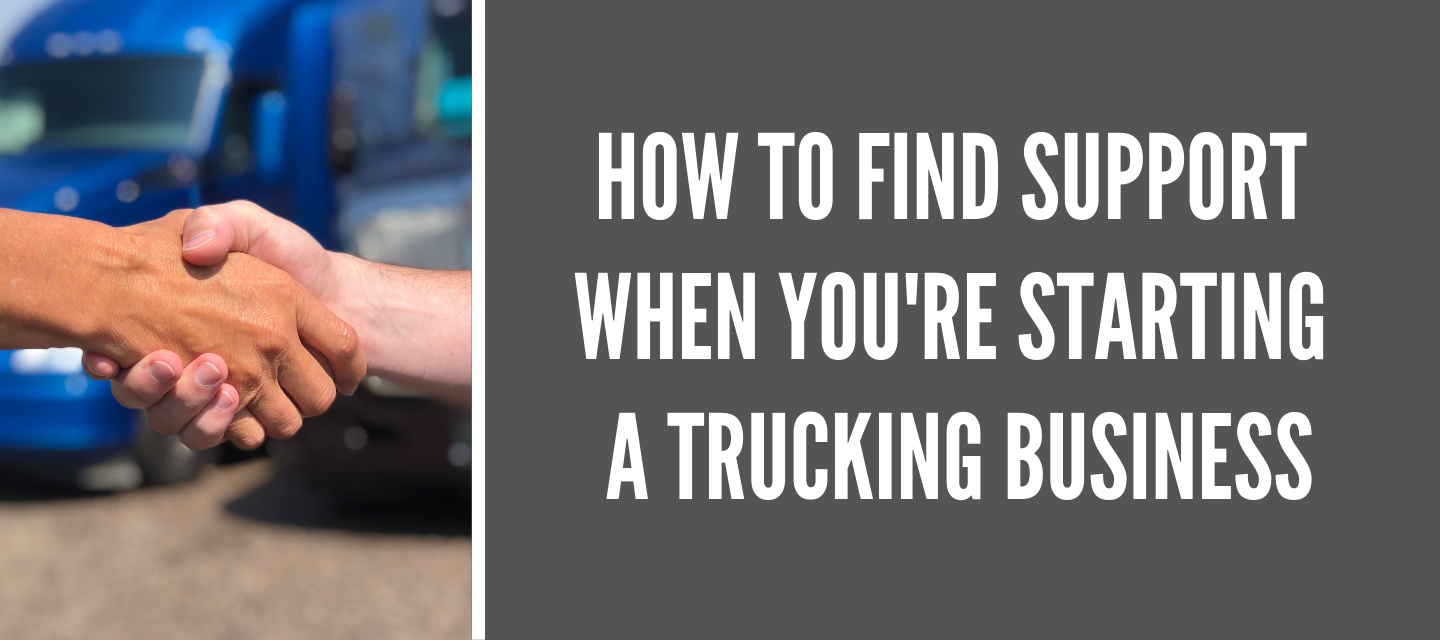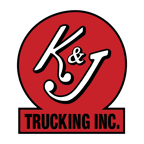How to Find Support When You're Starting a Trucking Business

If you're a company driver the thought of starting your own trucking business and becoming an owner operator can be daunting. And honestly, it should be a little daunting. When you become an independent contractor you take on a lot of risk as a business owner. Owning your own business could mean debt piling up, unanswered questions, bad business deals, and stress. However, you also have a huge opportunity to grow your income, be your own boss, and even build a fleet of trucks. It could also mean building a legacy to hand to your children.
In our forty plus years in the industry we've seen a lot, and we can confidently say that the difference between a successful trucking company and a struggling trucking company often comes down to two things: putting in the miles, and having good support for your business plan.
The first factor, putting in the miles, is solely up to you as a driver. Whether you are on your own or leased onto a company like K & J Trucking, at the end of the day the miles you drive (or don't drive) will have a direct effect on your pocket book.
The second factor, support, can be harder for some drivers. We put together a few ideas for ways you can find support as you start your trucking business.
1. Secure a Financial Support System
Becoming an independent contractor is a big financial commitment. Make sure you are ready to take the leap by going over your situation with a financial planner.
Once you are ready to take the leap, we strongly encourage you to hire a bookkeeper or tax preparer to help you with your financial obligations. We don't usually encourage individuals to do their own bookkeeping and run their own finances as an owner operator unless they are gifted in that area.
Switching gears to become an owner operator means suddenly keeping track of expenses, filing receipts, and holding onto paperwork. If this isn't something you already do naturally, it is a good idea to invest in a responsible, trustworthy bookkeeper. Don't wait until tax season, start your journey with financial support in place.
2. Consider Leasing Onto a Trucking Company
Before you take the leap into going completely solo and booking your own loads, you should seriously consider leasing onto a company. The support you will receive from being an independent contractor will save you time, money, and stress. There is nothing wrong with going it alone and looking for high paying loads, but leasing onto a company often helps you put in more miles overall.
Leasing onto a company also gives you access to their training and services (of course this varies between companies). At K & J, independent contractors can utilize our safety, licensing, registration, billing, and shop, allowing them to focus on their work behind the wheel.
3. Research Lease-Purchase Programs Before Signing
We at K & J continue to be frustrated by the number of scams that take advantage of new owner operators, often through predatory lease-purchase practices. Make sure that the company with which you choose to lease has open and honest business practices. Ask about the success rate of their lease-purchase program. Ask to talk to current lessees and discuss their experience.
If you are new to the process, it is also a good idea to have an external legal or financial representative review your contracts to ensure they are fair and financially responsible.
4. Contact Your Local SBA
What is SBA? It stands for the Small Business Administration and they are a government entity that is all over the US in local offices. We spoke with our local office and they mentioned that they have the resources to help truck drivers determine which legal entity they want to use (sole proprietorship, S-Corp, LLC, etc.), help you complete a business plan, walk you through the process of projecting potential income, and even help you secure bank financing using their partnerships around the community. The best part about SBA is it is a free resource. To get connected with a local SBA office, click here.
5. Find Mentors in the Business
Seek out other drivers who are ahead of you in the business. If your goal is to own a small fleet in 10 years, then find someone who has worked up to that stage and ask if they can give you advice. In this industry most people are willing, even excited, to pay it forward by helping someone else out.
Don't know where to find a mentor? Contact us by clicking below! We love to support new owner operators!
The SBA also promotes another free resource called SCORE.org which connects business owners with mentoring specific to their industry. You can submit a request for a mentor on the website and your local chapter will get back to you. Please note that since this is a national resource, you may need to connect with someone outside of your area.
Thinking About Taking the Leap?
If you're considering the move to becoming an owner operator, here are a few additional resources.
How to Become an Owner Operator
What is the Difference Between an Owner Operator and a Company Driver
What is the Difference Between an Owner Operator and an Indepedent Contractor
Is it time to make a move? We would love to talk to you about your future and see if K & J Trucking is a good fit for your needs as an owner operator or company driver!



